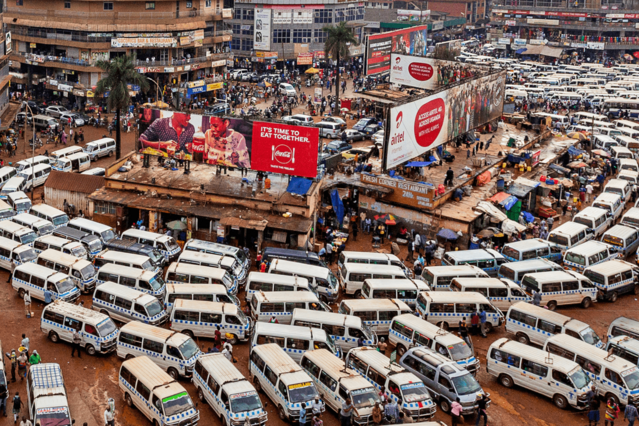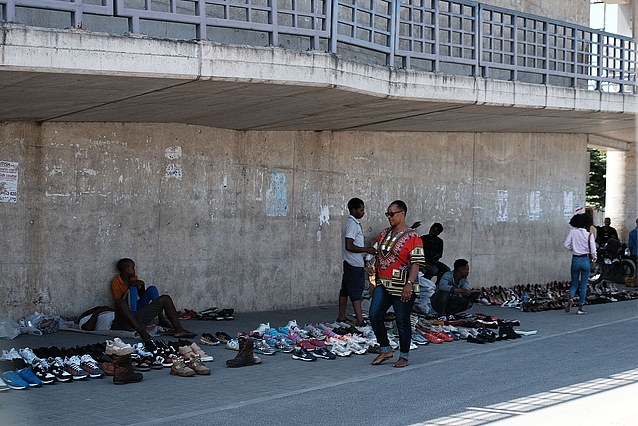The mixed plate of urban dreams and realities in East Africa
As Sub-Sahara Africa’s (SSA) population is rapidly increasing, so is its urbanisation rate. Across SSA, people are moving out of the rural areas to the cities. Processes of urbanisation are fast and unstoppable. It is believed that in the next 30 years, out of two billion people living in Africa, only a quarter is going to reside in the rural areas.
However, the high expectations of people migrating from rural to urban areas in countries such as Kenya, Uganda and Tanzania are usually met with disappointments and dissatisfaction, as was revealed
by surveys conducted by Friedrich-Ebert-Stiftung in those countries in 2019, 2020 and 2021 respectively. The results show the importance to rethink urban environments and managing people’s expectations. Almost a quarter of all respondents considered moving, among which more than half expressed their desire to move to a city. The biggest motivation for the move, expressed by almost half of the respondent, is economic opportunities, particularly finding work or better jobs, 37 per cent. The other reasons for moving were social, such as joining a spouse or family member, 14 per cent and seeking better services, 12 per cent. Interestingly, when looking at individual countries, incentives differ noticeably. In Tanzania, social reasons ranked almost as high as economic reasons, whereas in Kenya and Uganda social aspects of migration played a smaller role. Gender roles are also noticeable, since 60 per cent of men mentioned economic reasons dictating the decision, whereas for women the percentage amounted only to 48 per cent. However, looking at the demographics again, the majority of migrants to cities are young educated women. What does it mean for sustainable urban development?
Reality Is Somewhat Different
While historically, urbanisation has been associated with significant economic and social transformations, including service delivery, the reality is somewhat different. While over a half of the urban respondents described the government service provision as good or excellent – with a staggering difference comparing Tanzania (72 per cent) to Kenya (46 per cent) and Uganda (49 per cent) – the majority of East African urban dwellers look forward to even higher improvement in that sector (79 per cent in Kenya, 76 per cent in Uganda and 81 per cent in Tanzania).
The study also shows a general dissatisfaction with the services provided, considering the money paid in direct taxes with only 6 per cent, 12 per cent, and 20 per cent of Kenyans, Ugandans, Tanzanians respectively, answering that they receive “a fair amount” of services. Despite that, almost three quarters of the respondents strongly opposed the idea of paying more taxes with a promise of more services. This can be interpreted as an indication of a huge disparity between revenues collected and services delivered to the people, which augments people’s distrust in the government. How then, are cities supposed to finance the expansion of urban infrastructures, or the delivery of public services, improve the living standard and battle inequalities? UN Habitat is trying to tackle this issue with their coming ‘World Cities Day’ on the 31st of October under the theme “Financing sustainable urban future for all”.
Unmet Expectations, Civic Disengagement
How do people respond? Our datashows that there is increasing frustration from the unmet expectations come with civic disengagement. When asked about their membership and associations to groups, ranging from religious organisations to selfhelp groups, to trade unions, political groupings or social media and other networks, people from rural areas, 20 per cent, were slightly more engaged than their urban counterparts, 18 per cent. The trend continued when asked about the contact with their local leaders, with Tanzania falling back behind Kenya and Uganda in that aspect – 8 per cent in urban areas compared to Uganda’s 20 per cent, and Kenya’s 18 per cent. On the other hand, urban dwellers are significantly more active in social media groups with 32 per cent, compared to 11 per cent of the rural population. When looking at civic action, Tanzanians are less likely to take any action than Kenyans or Ugandans, believing that local leadership serve as a channel to express the issues, which is intriguing,
since they also showed the smallest engagement with the local leaders among the three countries.
The Revenue-Service Gap Dilema
- The results of surveys conducted by Friedrich-Ebert-Stiftung in Kenya, Uganda and Tanzania in 2019, 2020 and 2021, show a general dissatisfaction with the services provided, considering the money paid in direct taxes with only 6 per cent, 12 per cent, and 20 per cent of Kenyans, Ugandans, Tanzanians respectively, answering that they receive “a fair amount” of services.
- Almost three quarters of the respondents strongly opposed the idea of paying more taxes with a promise of more services.
- How then, are cities supposed to finance the expansion of urban infrastructures, or the delivery of public services, improve the living standard and battle inequalities?
Involve the urban citizenry
The study shows that rural-to-urban migration functions as an answer to a lack of economic opportunities and insufficient social services. However, after relocating to cities, people often don’t achieve aspirations and once again are longing for improvement. When people’s expectations are not met, and disappointments arise, attitudes towards authorities change and so does their willingness to pay more taxes to improve public services. These are problems that can, and should be addressed on the national and local level. The governments could involve the urban citizenry in financing and investment planning for sustainable future. The focus should move to urban dwellers to create people-centered urban spaces.
Citizens’ priorities should be heard and taken into account. Cities are growing at an unprecedented rate and action has to be taken to make them more equitable, inclusive, and to provide equal opportunities. The challenge of disenfranchisement and decreased political activity among urban dwellers has to be met before rising disappointment and frustration eventually lead to more dramatic
ways of expression. There is huge potential for civic engagement of urban dwellers to enhance democratic governance of cities, including ensuring community involvement in projects, transparent governance and pro-poor financial mechanisms.
The authors: Radosław Kawałek, Geraldine Kabami, Titus Kaloki, and Amon Petro work for Friedrich-Ebert-Stiftung’s offices in Tanzania, Uganda and Kenya
This article first appeared on The East African Newspaper on 31st October 2023.
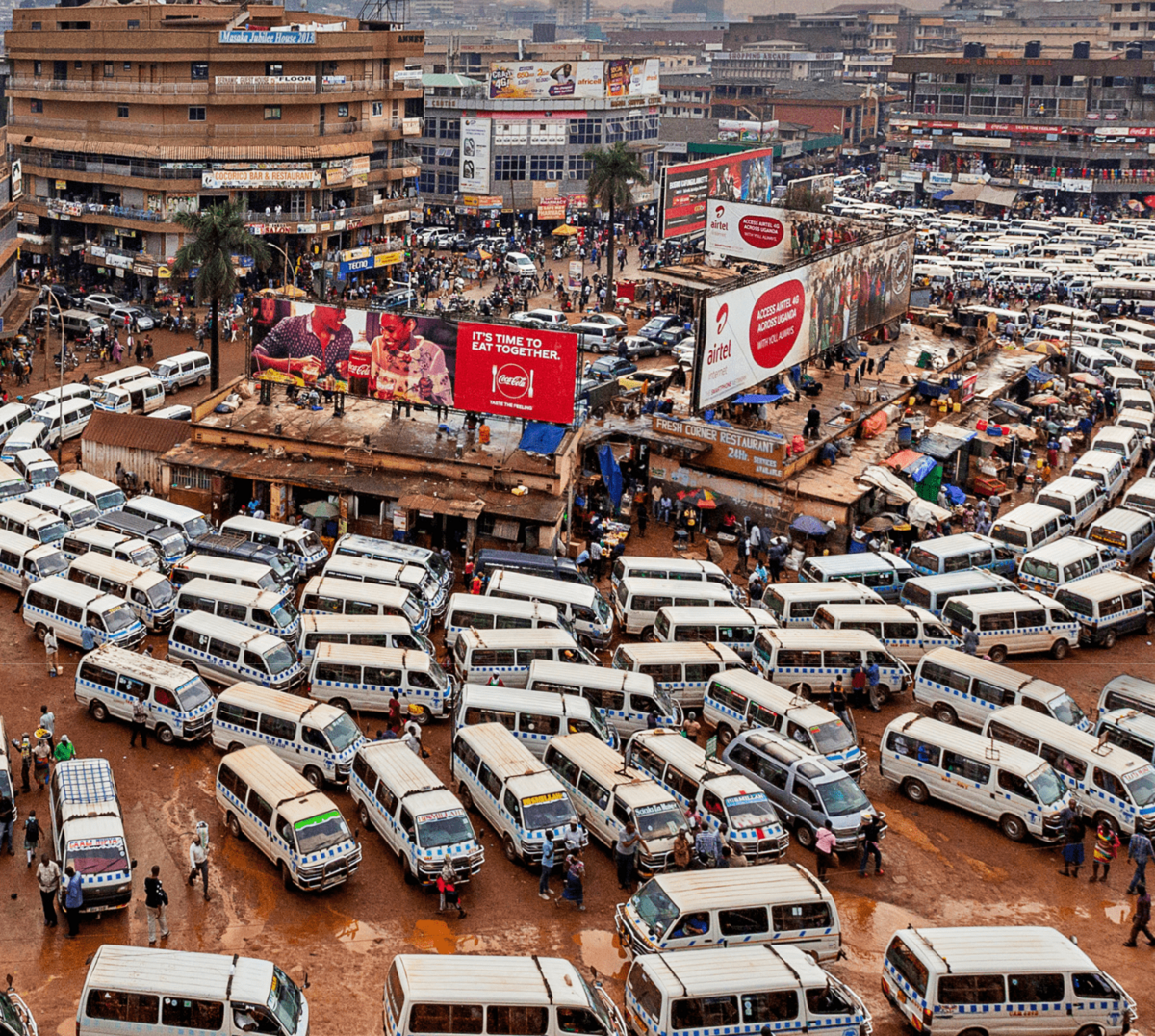
As Sub-Sahara Africa’s (SSA) population is rapidly increasing, so is its urbanisation rate. Across SSA, people are moving out of the rural areas to the cities. Processes of urbanisation are fast and unstoppable. It is believed that in the next 30 years, out of two billion people living in Africa, only a quarter is going to reside in the rural areas.
However, the high expectations of people migrating from rural to urban areas in countries such as Kenya, Uganda and Tanzania are usually met with disappointments and dissatisfaction, as was revealed
by surveys conducted by Friedrich-Ebert-Stiftung in those countries in 2019, 2020 and 2021 respectively. The results show the importance to rethink urban environments and managing people’s expectations. Almost a quarter of all respondents considered moving, among which more than half expressed their desire to move to a city. The biggest motivation for the move, expressed by almost half of the respondent, is economic opportunities, particularly finding work or better jobs, 37 per cent. The other reasons for moving were social, such as joining a spouse or family member, 14 per cent and seeking better services, 12 per cent. Interestingly, when looking at individual countries, incentives differ noticeably. In Tanzania, social reasons ranked almost as high as economic reasons, whereas in Kenya and Uganda social aspects of migration played a smaller role. Gender roles are also noticeable, since 60 per cent of men mentioned economic reasons dictating the decision, whereas for women the percentage amounted only to 48 per cent. However, looking at the demographics again, the majority of migrants to cities are young educated women. What does it mean for sustainable urban development?
Reality Is Somewhat Different
While historically, urbanisation has been associated with significant economic and social transformations, including service delivery, the reality is somewhat different. While over a half of the urban respondents described the government service provision as good or excellent – with a staggering difference comparing Tanzania (72 per cent) to Kenya (46 per cent) and Uganda (49 per cent) – the majority of East African urban dwellers look forward to even higher improvement in that sector (79 per cent in Kenya, 76 per cent in Uganda and 81 per cent in Tanzania).
The study also shows a general dissatisfaction with the services provided, considering the money paid in direct taxes with only 6 per cent, 12 per cent, and 20 per cent of Kenyans, Ugandans, Tanzanians respectively, answering that they receive “a fair amount” of services. Despite that, almost three quarters of the respondents strongly opposed the idea of paying more taxes with a promise of more services. This can be interpreted as an indication of a huge disparity between revenues collected and services delivered to the people, which augments people’s distrust in the government. How then, are cities supposed to finance the expansion of urban infrastructures, or the delivery of public services, improve the living standard and battle inequalities? UN Habitat is trying to tackle this issue with their coming ‘World Cities Day’ on the 31st of October under the theme “Financing sustainable urban future for all”.
Unmet Expectations, Civic Disengagement
How do people respond? Our datashows that there is increasing frustration from the unmet expectations come with civic disengagement. When asked about their membership and associations to groups, ranging from religious organisations to selfhelp groups, to trade unions, political groupings or social media and other networks, people from rural areas, 20 per cent, were slightly more engaged than their urban counterparts, 18 per cent. The trend continued when asked about the contact with their local leaders, with Tanzania falling back behind Kenya and Uganda in that aspect – 8 per cent in urban areas compared to Uganda’s 20 per cent, and Kenya’s 18 per cent. On the other hand, urban dwellers are significantly more active in social media groups with 32 per cent, compared to 11 per cent of the rural population. When looking at civic action, Tanzanians are less likely to take any action than Kenyans or Ugandans, believing that local leadership serve as a channel to express the issues, which is intriguing,
since they also showed the smallest engagement with the local leaders among the three countries.
THE REVENUE-SERVICE GAP DILEMMA
- The results of surveys conducted by Friedrich-Ebert-Stiftung in Kenya, Uganda and Tanzania in 2019, 2020 and 2021, show a general dissatisfaction with the services provided, considering the money paid in direct taxes with only 6 per cent, 12 per cent, and 20 per cent of Kenyans, Ugandans, Tanzanians respectively, answering that they receive “a fair amount” of services.
- Almost three quarters of the respondents strongly opposed the idea of paying more taxes with a promise of more services.
- How then, are cities supposed to finance the expansion of urban infrastructures, or the delivery of public services, improve the living standard and battle inequalities?
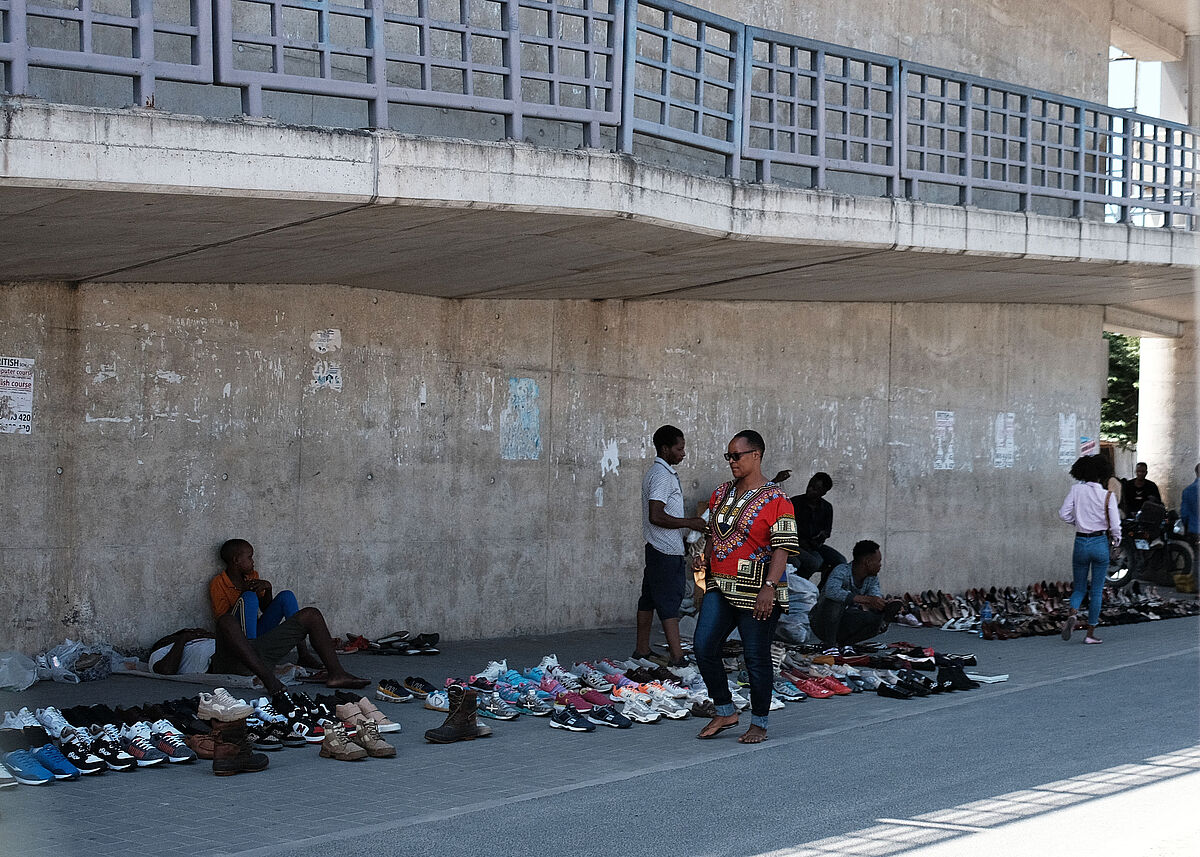
Involve the urban citizenry
The study shows that rural-to-urban migration functions as an answer to a lack of economic opportunities and insufficient social services. However, after relocating to cities, people often don’t achieve aspirations and once again are longing for improvement. When people’s expectations are not met, and disappointments arise, attitudes towards authorities change and so does their willingness to pay more taxes to improve public services. These are problems that can, and should be addressed on the national and local level. The governments could involve the urban citizenry in financing and investment planning for sustainable future. The focus should move to urban dwellers to create people-centered urban spaces.
Citizens’ priorities should be heard and taken into account. Cities are growing at an unprecedented rate and action has to be taken to make them more equitable, inclusive, and to provide equal opportunities. The challenge of disenfranchisement and decreased political activity among urban dwellers has to be met before rising disappointment and frustration eventually lead to more dramatic
ways of expression. There is huge potential for civic engagement of urban dwellers to enhance democratic governance of cities, including ensuring community involvement in projects, transparent governance and pro-poor financial mechanisms.
The authors: Radosław Kawałek, Geraldine Kabami, Titus Kaloki, and Amon Petro work for Friedrich-Ebert-Stiftung’s offices in Tanzania, Uganda and Kenya
This article first appeared on The East African Newspaper on 31st October 2023.
Survey Project: The Urban Dream and the Realities of Rural to Urban Migration in Sub-Saharan Africa
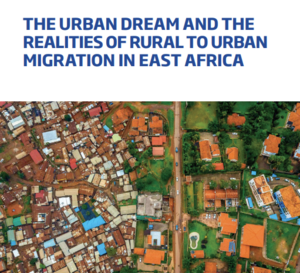
Read more about the study "The Urban Dreams and Realities of Rural to Urban Migration in Sub-Saharan Africa," that assesed the variances in public service delivery and democratic development between urban and rural areas across Eastern and Western African countries, including Kenya, Uganda, Tanzania, Senegal, and Namibia.
